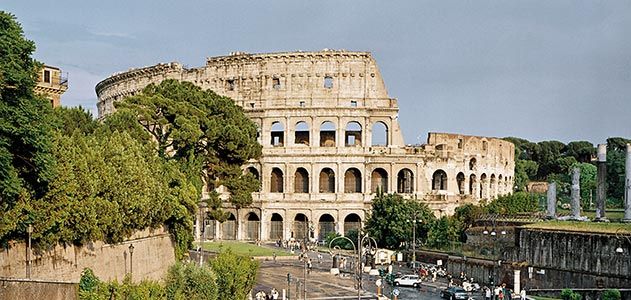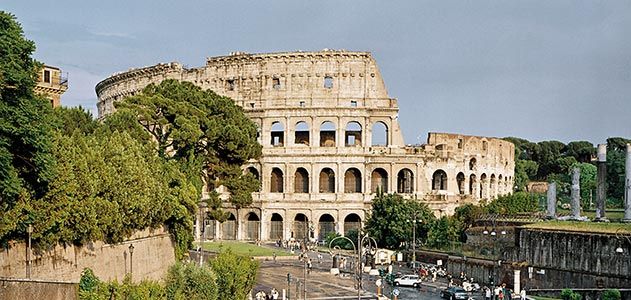In the annals of history, the political landscape of ancient Rome stands out as a fascinating tapestry of power struggles, conquests, and governance. The rise of Rome from a city-state to a dominant empire has captured the imagination of scholars and enthusiasts for centuries. Let’s delve into the intriguing political history of ancient Rome.
The Early Republic: Foundation and Expansion
The legendary foundation of Rome by Romulus and Remus marked the beginning of a political journey that would shape the course of Western civilization. The early Roman Republic was characterized by a system of checks and balances, with power distributed among various institutions such as the Senate, executive magistrates, and popular assemblies.
As Rome expanded its influence across the Italian peninsula, its political structure evolved to accommodate the needs of a growing empire. The concept of Roman citizenship and the extension of rights to conquered peoples laid the groundwork for Rome’s assimilative political model.

Credit: www.smithsonianmag.com
Credit: www.encounterstravel.com
The Punic Wars and the Shift to Imperialism
The Punic Wars, especially the Second Punic War with the legendary Carthaginian general Hannibal, transformed Rome’s political dynamics. The period witnessed the rise of prominent military leaders, including Scipio Africanus, whose influence extended beyond the battlefield into the realm of politics.
From the ashes of the conflict, Rome emerged as a formidable imperial power, spreading its dominion across the Mediterranean. The political system, once defined by a balance of power, began to undergo a seismic shift as individual generals and statesmen vied for supremacy and control.
The Fall of the Republic: A Cautionary Tale
With the ascent of figures like Julius Caesar, the fragile equilibrium of the Roman Republic began to unravel. The struggle between the optimates and populares, representing the aristocracy and the common people, respectively, exacerbated the political tensions within Rome.
Caesar’s crossing of the Rubicon and his subsequent rise to power marked a crucial turning point in Roman political history. The Senate, once a bastion of republican governance, found itself eclipsed by the growing cult of personality centered around ambitious leaders.
The Imperial Era: Consolidation and Governance
Following the demise of the Republic, the Roman Empire ushered in a new era of centralized governance under the auspices of emperors. Augustus, the first Roman emperor, laid the groundwork for a government that combined traditional Republican institutions with imperial authority.
Under the Pax Romana, a period of relative peace and stability, the political machinery of Rome adapted to the demands of governing territories as far-flung as Britannia, Gaul, and Egypt. The emperor became the focal point of power, wielding both political and religious influence over the Roman populace.
Legacy and Influence
The political history of ancient Rome reverberates through the corridors of time, leaving an indelible mark on subsequent political systems. Roman law, administrative structures, and the concept of citizenship have endured as enduring legacies of Rome’s political legacy.
Even in the contemporary world, the echoes of Roman political thought and governance remain discernible, underscoring the enduring significance of this ancient civilization’s political evolution.
Conclusion
In conclusion, the political history of ancient Rome represents a riveting saga of ambition, conflict, and innovation. From the tentative roots of the Roman Republic to the zenith of imperial power, the evolution of Rome’s political institutions continues to captivate those seeking insights into the complexities of governance and influence. The legacy of Rome’s political history lives on as a compelling narrative that reverberates across the annals of human civilization.
Frequently Asked Questions For Ancient Political History Roman: Unveiling The Intriguing Power Dynamics
Who Were The Ancient Political Leaders In Rome?
Rome was ruled by various leaders including Julius Caesar, Augustus, and Marcus Aurelius.
How Did Ancient Romans Participate In Politics?
Ancient Romans participated in politics through voting in elections and holding public offices.
What Were The Roman Political Institutions?
The Roman Republic had institutions like the Senate, Consuls, and Assemblies that played a crucial role in governing the state.
What Was The Role Of The Roman Senate?
The Roman Senate served as an advisory body to the Roman government and played a significant role in making important decisions.
Guest Author Sakhawat-Shuvo wrote and edited this Article based on his best knowledge and understanding. These opinions and remarks are not endorsed or guaranteed by epichistoria.com or EpicHistoria. The Epic Historia does not guarantee this article’s content. Readers should verify and use their judgment before trusting the content. Also, the Images used in this Article are the copyright of their Respective Owners. Please use our Comment Box or Contact Us form to report this content. This information is not accountable for losses, injuries, or damages.


